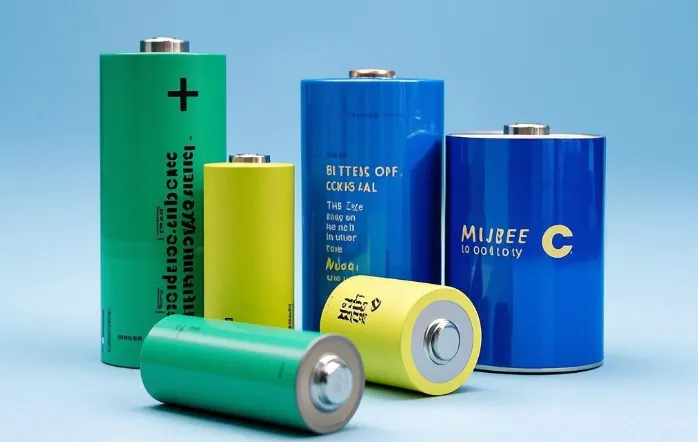In the ever - advancing world of energy storage, lithium - ion batteries have emerged as the cornerstone technology, powering everything from portable electronics to electric vehicles. Among the various configurations of lithium - ion batteries, prismatic, cylindrical, and pouch batteries stand out as the three most common types, each with its own unique characteristics, advantages, and applications.

Prismatic Batteries
Prismatic batteries are characterized by their rectangular, box - like shape. The casing of a prismatic battery is typically made of metal, such as aluminum or steel. This design offers several key advantages.
One of the main benefits is space efficiency. Prismatic batteries can be easily arranged and stacked in a battery pack, allowing for a more compact and efficient use of space. This makes them particularly suitable for applications where space is at a premium, such as in laptops and some electric vehicles.
In terms of performance, prismatic batteries can offer high energy density. They are capable of storing a large amount of energy in a relatively small volume, which is crucial for devices that require long - lasting power. Additionally, prismatic batteries can handle high - current discharges well, making them suitable for applications that demand a burst of power, like electric vehicle acceleration.
However, prismatic batteries also have some drawbacks. The manufacturing process can be relatively complex and costly, especially when compared to cylindrical batteries. The metal casing also adds some weight to the battery, which can be a disadvantage in applications where weight is a critical factor, such as in drones.
Cylindrical Batteries
Cylindrical batteries are perhaps the most recognizable type, with their circular cross - section and typically small size. The most common example is the 18650 battery, which is widely used in various applications.
One of the major advantages of cylindrical batteries is their simplicity of design and manufacturing. The uniform cylindrical shape makes them easy to produce in large quantities, resulting in lower production costs. This affordability has made cylindrical batteries popular in a wide range of consumer electronics, such as smartphones, power banks, and electric toothbrushes.
Cylindrical batteries also offer good heat dissipation characteristics. The circular shape allows for better heat distribution, which helps to prevent overheating during charging and discharging. This makes them more reliable and safer in some applications.
On the other hand, cylindrical batteries may not be as space - efficient as prismatic batteries. When assembled into a battery pack, there are often gaps between the individual cells, which can lead to a less compact overall design. Additionally, their energy density per unit volume may be lower compared to some prismatic batteries.
Pouch Batteries
Pouch batteries, also known as polymer lithium - ion batteries, are encased in a flexible, lightweight plastic or polymer film. This unique packaging gives them several distinct advantages.
The most significant advantage of pouch batteries is their lightweight nature. The flexible polymer casing is much lighter than the metal casings of prismatic and cylindrical batteries, making pouch batteries an ideal choice for applications where weight is a major concern, such as in wearable devices and some electric vehicles aiming for maximum range.
Pouch batteries also offer high flexibility in terms of shape and size. They can be easily customized to fit specific device requirements, allowing for more innovative and space - saving designs. This makes them popular in applications where traditional battery shapes may not be suitable, such as in curved or irregularly shaped electronics.
However, pouch batteries are more vulnerable to physical damage compared to their metal - cased counterparts. The polymer casing can be easily punctured or torn, which may lead to leakage or even safety hazards. Additionally, they may have a shorter lifespan in some cases due to the degradation of the polymer material over time.
Conclusion
In conclusion, prismatic, cylindrical, and pouch batteries each have their own strengths and weaknesses, and the choice of which type to use depends on the specific requirements of the application. Prismatic batteries offer high energy density and space efficiency, cylindrical batteries are cost - effective and have good heat dissipation, and pouch batteries are lightweight and highly customizable.
We are proud to inform that we possess the production and testing equipment for all three types of these batteries. This enables us to ensure the quality and performance of our products, and we are committed to providing reliable lithium - ion battery solutions for different industries.



